The brilliant Irish comedian Andrew Maxwell describes doing stand-up at the Edinburgh Fringe as ‘exams for clowns’, and even though I first appeared there in 1981 (when the Cambridge Footlights Revue featured Hugh Laurie, Stephen Fry, Emma Thompson and Tony Slattery), I felt an overwhelming surge of nervousness as I began my short run this year with the peerless mimic Jan Ravens (who herself had directed that illustrious 1981 cast). By the middle of the week, I’d finally managed to reach the zone that stand-up requires, being both relaxed and focused. Watching my favourite stand-ups (Hal Cruttenden, Simon Evans, Justin Moorhouse and Maxwell himself) and some exciting new discoveries — such as the hilariously outrageous Lou Sanders — I marvel at their skill: timing, inventiveness, observation, playfulness, interaction with the audience and call-backs (pay-offs to jokes planted earlier in the routine).
With Maxwell and Matt Forde in particular, I shared the self-imposed mission of making sense/nonsense of the past year, featuring Trump, Brexit, May and Corbyn. Forde’s is the more uncompromising and detailed political routine (the only one I saw which included four minutes on that comedy gift, the Scottish government’s Sustainable Growth Commission). As politicians become comedians, it’s not surprising that comedians get political. It’s not enough to make Trump or Boris look stupid: they do that themselves. I wanted to go further, explain why both men seem to be channelling the Radio 4 panel show The Unbelievable Truth, where guests have to smuggle the odd fact into a routine made up of nonsense. The Washington Post has been tracking the false claims and misleading statements uttered by President Trump since he took office. By the beginning of this month, they’d reached 4,229. Trump’s own ‘fake news’ is currently generating inaccuracies at the rate of between 400 and 500 a month — 79 on one day alone, 5 July. These include anything from ‘the biggest tax cut in history’ (there have been seven bigger) to fabrications about the Queen inspecting her Honour Guard for the first time in 70 years. (She’s only been monarch for 66 years and inspects her Honour Guard more regularly than he inspects Melania’s.)
As for Boris, his pledge to lie in front of the bulldozers at Heathrow is at least consistent — he’s already lied in front of a bus, Michael Howard, and his wife Marina. The former foreign secretary has described his joyous hours at the Telegraph ‘composing foam-flecked hymns of hate to the latest Euro-infamy’: the ban on prawn cocktail crisps and double-decker buses; the legal battles over the Euro-condom and the harmonisation of lawnmower noise. Confession: I added the last myself. When the Two Johns, Bird and Fortune, went to Strasbourg years ago to research the European Parliament they found it debating lawnmower noise. Beyond satire, you’d think. Except I discovered last year that the debate had been initiated by us, the British. The Germans were using national legislation to ban the import of British lawnmowers and Britain called for a debate to establish a common standard. Not satire then, but perfect sense.
Between shows I find myself addressing a rally supporting a People’s Vote on the final Brexit deal. I have some sympathy for Theresa May — she keeps going to Switzerland, Dignitas keeps sending her back — but her white paper published this summer is in effect the second draft of a Brexit manifesto (the first being her Lancaster House speech in January 2017, snubbed at the subsequent election). It is therefore the first time in my experience that the manifesto has turned up more than two years after the vote. Time for another, then.
People may object this is a betrayal of democracy. I believe it would be an affirmation of informed democracy. There can be no doubt that we are better informed and more aware of the issues than we were in 2016. Jacob Rees-Mogg himself said a second referendum after the negotiations would make sense (though I suspect JRM is Sacha Baron Cohen’s most satirical character yet). ‘The people have spoken,’ said Paddy Ashdown, or it may have been Danny Dyer. ‘It’s just we don’t know what they said.’ I think we’d have a better idea now.
I seem to have spent a fair amount of this long hot summer holding on to a rope with a pony at the other end. My daughter is currently held hostage by British showjumping and will be released at the end of next year. It’s a funny old world. Commentators wax lyrical about the great relationships forged by the girls. Not with their mothers. That relationship’s shot from day one. It’s often said that ponies delay the discovery of boys. I’m sure there’s a mother somewhere introducing her daughter to as many drugs and boys as possible, believing that the more she’s into them, the less likely she’ll get into ponies.
I wouldn’t change it, though. There’s still a lot of fun and great experiences. Not least at the splendid All England Jumping Course in Hickstead, created by the late Douglas Bunn: a real character, larger than life and twice as colourful. A renowned showjumper and barrister, he would often attend court wearing breeches and riding boots beneath his gown. His language was equally colourful and defied convention — hence the moniker ‘Sir Bugger’, a name he lived up to once at the Royal Windsor Horse Show. Sitting behind the Queen, he was watching his daughter Chloe compete when she had a pole down. ‘Bugger!’ exclaimed Douglas loudly, causing HM to turn and fix him with a raised eyebrow of admonishment. Chloe recovered and went on to win, whereupon the Queen turned to Douglas and said, deadpan: ‘Didn’t bugger it up that badly, did she?’
Got something to add? Join the discussion and comment below.
Get 10 issues for just $10
Subscribe to The Spectator Australia today for the next 10 magazine issues, plus full online access, for just $10.
You might disagree with half of it, but you’ll enjoy reading all of it. Try your first month for free, then just $2 a week for the remainder of your first year.

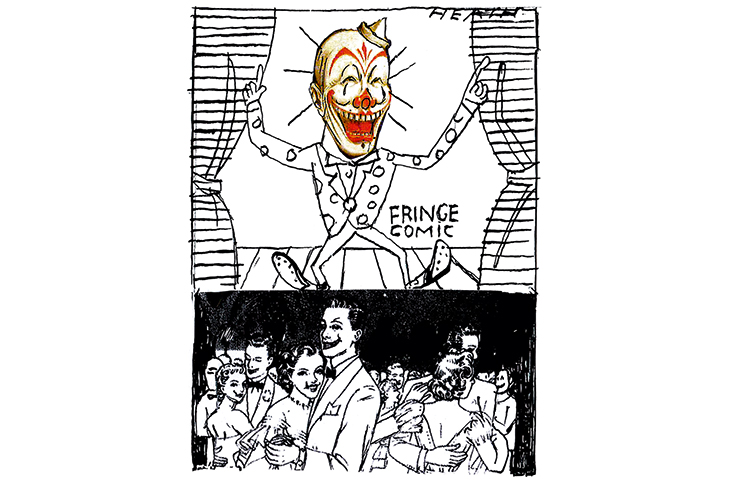
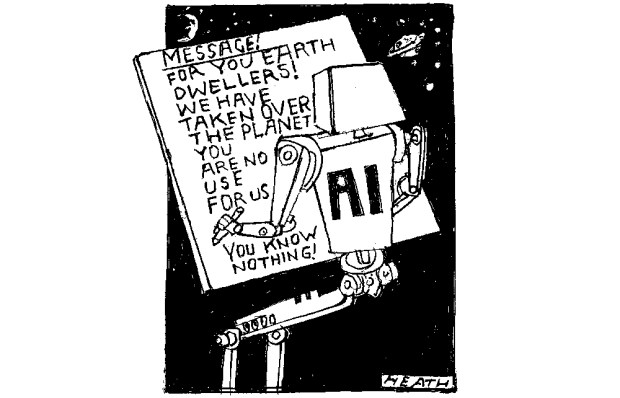
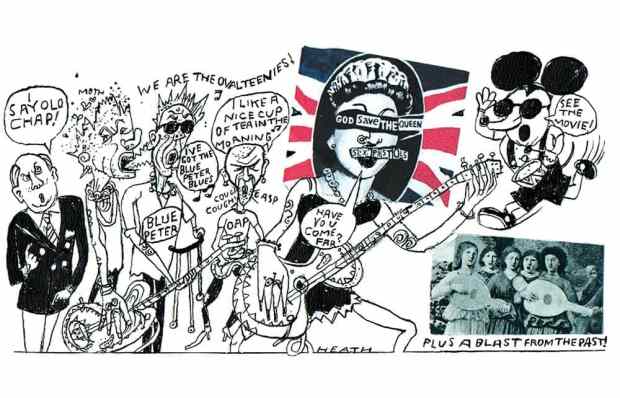
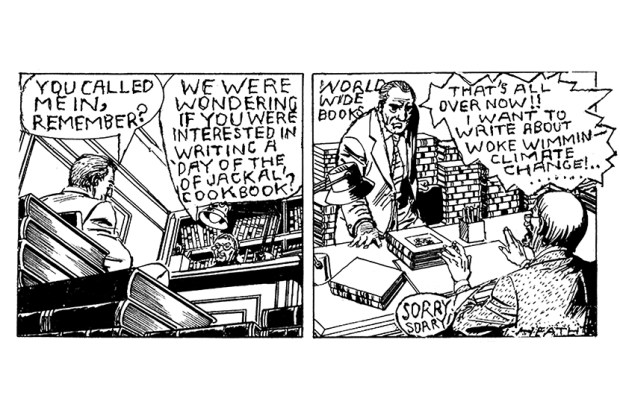
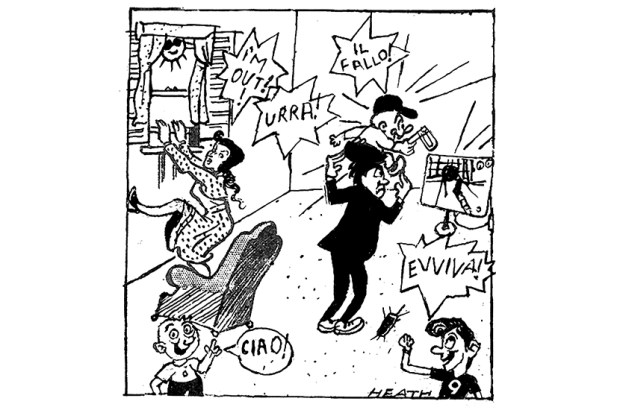
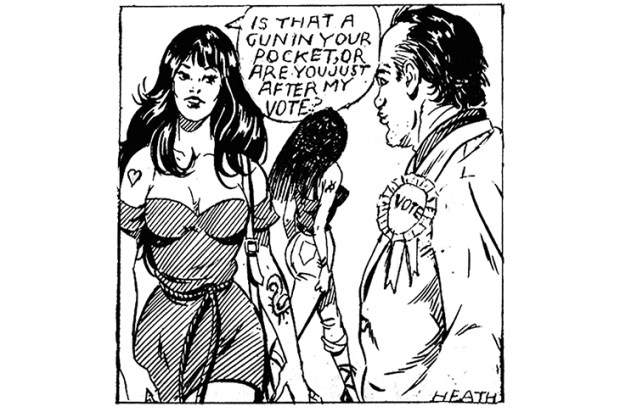
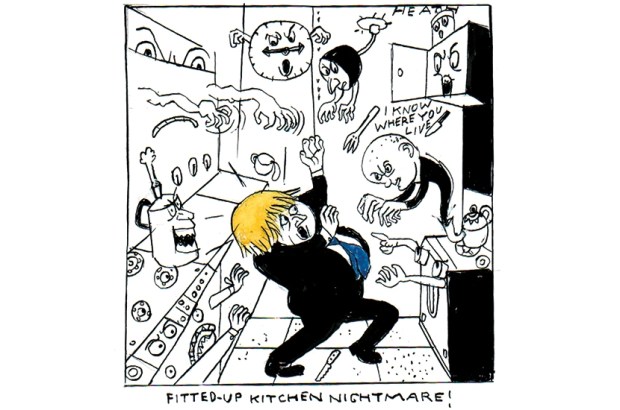






Comments
Don't miss out
Join the conversation with other Spectator Australia readers. Subscribe to leave a comment.
SUBSCRIBEAlready a subscriber? Log in